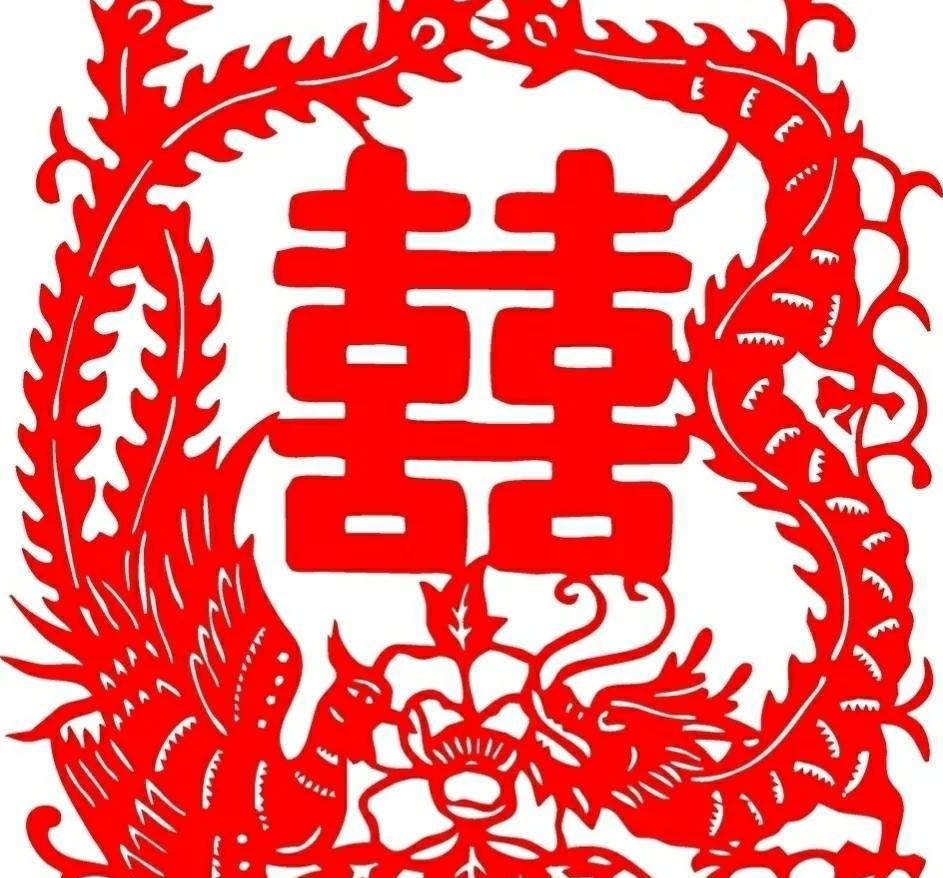The word "囍"
When getting married, the family of the person who does the wedding will put the red "囍" character on the doors, windows and objects. So where did the word "囍" come from?
It is said that the word "囍" is related to Wang Anshi during the Northern Song Dynasty. Wang Anshi went to the exam at the age of 23, and when he saw the marquee lamp of the horseman's house outside the town of Majia town, it was written on the marquee lamp of the horseman's house, "Walk the marquee, the lamp goes, the lamp goes out and the horse stops", and he couldn't help but clap his hands and praise: "Good uplink!" The horseman heard that someone praised Zheng lian and felt that it was his confidant, so he came out to look for it, but Wang Anshi had already left.

Wang Anshi thought about it in the examination room and quickly completed the examination questions. The chief examiner saw that he was quick in thinking, and when Wang Anshi came out of the examination room, he pointed to the flying tiger flag in front of the hall to test him: "Flying tiger flag, flag tiger flying, flag rolling tiger hiding." After Wang Anshi listened, he remembered the Zhenglian he saw in Maji Town, and blurted out: "Take the marquee, the lamp horse goes, the lamp goes out and the horse stops." The examiner exclaimed in admiration.
After completing the examination, Wang Anshi returned to Majia Town and came to the horseman's house, and the horseman asked him to walk the pair of the marquee. Wang Anshi wrote by hand: "Flying Tiger Flag, Flag Tiger Flying, Flag Rolling Tiger Hiding." The horseman saw that he was talented, so he gave him his daughter.
Just as the newcomers were worshipping heaven and earth, someone outside reported: "Wang Anshi's gold list is inscribed." With joy and joy, Wang Anshi took the wine and wrote down the big red double "joy" and pasted it on the door.
In the passage of time, the custom of pasting the red and red double "joy" characters has been passed down and has been passed down to this day.
"Husband" and "Wife"
When a man and a woman marry, their identity will have more important roles, no longer just the sons and daughters of their parents, they will also become the husband and wife of the other half.
Men call their other half their wives, while women call their other half husbands. This title originates from the Tang Dynasty.
At that time, there was a reader named Mai Aixin, who took the meritorious name, saw that his wife was old and faded, he began to dislike her, and he still had the idea of marrying a new family in his heart, and he did not want to destroy his good reputation, so he wanted to let his wife leave on her own, so he wrote a vice link and put it on the desk: Lotus is broken, and the fallen leaves are rooted into old lotus. It means that over time, the beautiful lotus flowers and lotus leaves have decayed, leaving only the black and autumn old lotus hidden in the mud.
The wife is also a talented person, and when she sees the upper link, she continues the lower link: the yellow rice is ripe, and the chaff is blown to see the new grain of the rice. Directly indicate that Mai Aixin wants to discard the chaff and marry a bride back, and verbally criticize her husband for liking the new and tired of the old. "Hedao" to "Lotus", "New Grain" to "Old Lotus", and "New Grain" and "Bride" are harmonized. Mai Aixin read the lower link, felt ashamed, and dispelled the idea of marrying another new person.
When the wife saw her husband change his mind, she wrote an uplink: the husband is very fair.
Mai Ai saw the new one and continued to write the next link: the wife is a mother-in-law.
Since then, there have been two words in Chinese, "husband" and "wife".